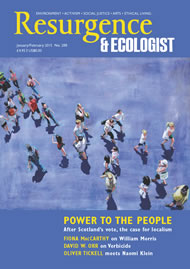Devastated by the death of her father, Helen Macdonald becomes obsessed with training her own goshawk. An experienced falconer who has had the ambition of working with such birds from the age of seven, she knows the goshawk presents a very particular kind of challenge. These round-winged woodland hunters are wilder than some other birds of prey, and require a special kind of patience to tame.
She buys Mabel on a Scottish quayside and takes her back home to her little urban house in Cambridge for training. As Macdonald struggles with the blazing wildness of the goshawk, she reflects on the experiences of the novelist T.S. White. As set out in his controversial 1951 classic The Goshawk, White made many mistakes while training his bird and became tortured in the process. Macdonald finds his shortcomings as a falconer were more down to his personal spiritual struggles than to an inability to acquire the skills needed to do the job properly.
Haunted by White’s dismal failure, Macdonald tells of her own slow progress and the painful and nerve-wracking process of transforming her killer bird into a creature that will do her bidding. As she does so she finds that, like White, she is on a personal journey. As the bird becomes tamer, she becomes wilder.
I’d turned myself into a hawk – taken all the traits of goshawks in the books and made them my own. I was nervous, highly strung, paranoid, prone to fits of terror and rage; I ate greedily or didn’t eat at all; I fled from society, and hid from everything; found myself drifting into the strange states where I wasn’t certain who or what I was.
In going to the wild side, she tells of predator-and-prey struggles and reminds us what Nature is, challenging our human perspective on what at times is more a matter of what we might like Nature to be. “The hawk twists, the squirrel makes leap, is silhouetted black against the sky, legs outstretched, and then a blunt, black form hits it. It is the hawk, I hear the impact, see the awkward, parachuting fall through thirty feet of snowy, splintered air and they land heavily on the ground… When I get there the squirrel is dead.”
Macdonald develops the theme of wildness to reflect on our modern environmental ideas and their links with nostalgic sentiments that are perhaps as off-beam as our popular view of ‘Nature’:
Old England is an imaginary place, a landscape built from words, woodcuts, films, paintings, picturesque engravings. It is a place imagined by people, and people do not live very long or look very hard. We are very bad at scale. The things that live in the soil are too small to care about; climate change too large to imagine. We are bad at time, too. We cannot remember what lived here before we did; we cannot love what is not. Nor can we imagine what will be different when we are dead. We live out our three score and ten, and tie our knots and lines only to ourselves. We take solace in pictures, and we wipe the hills of history.
So it is that through a story about a bird Macdonald enables us to glimpse our connection with the collective ideas and mental frames that are shaping our destiny. “I’m sad, and angry, and fired up as hell,” she writes. “I wish we would not fight for landscapes that remind us of who we think we are. I wish we would fight, instead, for landscapes buzzing and glowing with life in all its variousness. And I am guilty too. I’d wanted to escape history by running to the hawk.”
Such is the weave of ideas packed into this book. At times it feels like too many come at once, but while she challenges the reader with a torrent of thoughts, she keeps her threat and held my attention. The writing is for the most part beautiful, subtle and readable. There were times when, however, I felt the book was more for the benefit of the author than the reader. All literature must navigate this tension, of course, but in places it spilt over a bit too far for my liking.
I enjoyed H is for Hawk, though. Macdonald has contributed something distinctive, important and new to Nature writing, not least through the frank and very personal story she tells.
H is for Hawk was awarded the 2014 Samuel Johnson Prize for Non-Fiction.







